The Grapevine Art & Soul Salon
Why We Love Atlanta
WORKING TITLE PLAYWRIGHTS
We asked Jill Patrick, Managing Artistic Director of WTP from 2006-2016, to help us see into the work and peer group community of playwrights that developed so much under her ten years of leadership.
Jill Patrick: Calling All Playwrights
Working Title Playwrights (WTP) makes new plays happen by developing playwrights. Since 2000, WTP has helped new and emerging playwrights develop their skills as writers for the stage by providing bi-monthly critique sessions, educational workshops, master classes, and creative events such as Playwright Slams, 24-hour Plays, Short Play Festivals, and The WTP Chain Play—a single play in ten scenes, written anonymously, relay-style, by ten different playwrights.
WTP is a membership organization with annual dues renewable each June. There are currently nearly 100 members, and an acting ensemble of over 50 professional actors to help bring original characters to life during workshops and readings.
When I discovered WTP in 2004, I knew I wanted a peer group with which I could return to my first love of playwriting. I just needed to be certain this was a good investment of my time and hard-earned money. I spent the rest of that year sitting in on critique sessions, getting to know WTP’s members, observing the managerial system in place at the time, and volunteering on WTP’s behalf to help rehab its home theater, the former Neighborhood Playhouse in Decatur, Georgia.
There I amassed over 100 hours of cleaning and painting, and clearing out years of yard waste, as well as unearthing the most gorgeous giant hosta plants I have ever seen. With the help of a friend who liked digging in the dirt, and my husband who preferred keeping an eye on his tools rather than just letting me wander off with them, we devised and accomplished a walking path with stone and gravel, and a garden the likes of which no other theater in the area could claim. Where once was an eyesore of overgrown, unkempt space, we created an inviting hamlet (see what I did there?) for patrons of the theater to gather before shows and during intermissions.
In 2005, I received a grant from Poets & Writers, Inc., for the initial development of my solo performance memoir, Eating the Singletaries: Tales from a Tall Redhead. It was thanks to Working Title Playwrights and its then Managing Director, Evan Guilford-Blake, that my opportunity came about. I believe my grant opportunity was WTP’s way of giving thanks for my efforts on their behalf, and Evan’s way of getting me to become a member, as up until that check arrived (in the exact amount of WTP dues) I’d told him I did not have the discretionary money to pay for membership.
Evan was creating a new program that offered individual playwrights a chance to highlight, in a reading for the public, their writings in other genres such as poetry and prose. I, along with Marian X and Pamela Turner, two writers whom I greatly admire, were the first to be received into this program.
In putting together my reading, I discovered I had two themes throughout much of my personal writing: food and family. Realizing that most of the things I write tend to be about consumption of one sort or another, in Eating the Singletaries (the Singletaries being my father’s family), I placed heavy metaphorical emphasis on how one’s blood line can be devouring.
The night of my reading, I was nervous to the point of wobbly. I’ve always had stage fright and there was no one but me in the proverbial (and literal) spotlight on that occasion. But my audience, comprised of WTP members, novelist friends whom I quietly hoped to impress, friends from outside the theater community, and a few strangers who’d seen the press release and thought it sounded interesting, were wholly engaged in every moment. They laughed; they cried; they literally leapt to their feet to give me a standing ovation, before lining up and waiting long minutes to congratulate me on a stellar performance. I felt like a rock star. What WTP (and Poets & Writers, Inc.) gave to me that night was the acknowledgement from my peers and public and, most importantly, from myself, that my talents as a writer and storyteller were worthy of genuine exploration and discovery.
In 2006, after a brief time as a member playwright, I became WTP’s Managing Artistic Director. Evan resigned to pursue other artistic endeavors, and Kirsten Eidsmoe, WTP’s first Artistic Director, saw her skillset better suited to serving as a member of WTP’s board of directors. She proved herself to be a vital asset to the board throughout my tenure as M/AD, as well as the champion and Executive Producer of WTP’s Chain Play. We were delighted to be interviewed about this project by WABE’s Myke Johns.
My approach to the job of M/AD was somewhat that of an auditor: I surveyed area arts leaders on their impressions of the organization to find out WTP’s reputation in the community. I also surveyed the membership on their impressions, asking them questions such as what was WTP getting right, what was it getting wrong, what was it unaware of but ought to know, etc. The results of the survey (anonymously provided online) were staggering, but immeasurably useful in terms of letting me know the work I had before me. My goal was to elevate WTP from the inside out because I wanted every member to have the opportunity to feel like a rock star. Once excellence was established as our status quo, I had a hunch the community would also wholly embrace us - and it has.
Initially, I set about getting our programming into as many Atlanta-area theaters as possible. Once we were performing in front of arts leaders who otherwise might have dismissed us, I knew they would see the same potential that I saw in WTP: an earnest endeavor to create well-crafted plays by giving tools and opportunities for member playwrights to tell their stories for the stage to the best of their abilities. Academy Theater, Actor’s Express, Alliance Theatre, Emory University, Horizon Theatre, OnStage Atlanta, PushPush Theater, Stage Door Players and Synchronicity Theatre all helped WTP in supporting various programming during my ten years as M/AD.
By hiring Betty Hart, I incorporated professional moderation in all of WTP’s feedback sessions. Together, we managed significantly to elevate the level of critique given and received in every session by experimenting with different types of Q&A (some written, some verbal) and ultimately settled on a blind submission process loosely based on Liz Lerman’s Critical Response Technique by which those providing critiques of a given work did not know whose work they were responding to. It didn’t matter that most of them would gather at the pub down the street immediately following a session and disclose to each other who wrote what. Suddenly, friendships and grudges no longer weighed in during the process, and participating members gained that much more depth of skill in both their writing and their ability to respond with genuinely constructive critiques.
Throughout my administration, WTP had invaluable opportunities to offer Master Classes with Margaret Baldwin, Susan Booth, Pearl Cleage, Erik Ehn, Celise Kalke, Carlos Murillo, Topher Payne, Pamela Turner, et al. Dramaturgical services became a part of WTP’s programming during this time as well. Part of WTP membership is access to professional dramaturges at steeply discounted rates to help them navigate the course of their scripts in development. The program I am most proud of is our Ethel Woolson Lab. Ethel Woolson was a benefactor of WTP who, while on her deathbed, had her daughter issue a final check to the organization. I was so moved by this dedication to creative writing, and I wanted to honor her in a significant manner. Looking at other new play development companies across the country, I recognized one way to send a signal that WTP was ready to be considered a serious contender in the area of new play and playwright development: a named program.
After brainstorming with Suehyla El-Attar and Addae Moon, two of Atlanta’s finest playwrights and dramaturges, over bad Mexican food and weak margaritas, I created The Ethel Woolson Lab as a week-long developmental process for competitively selected member playwrights. Each playwright would have professional directors, actors and dramaturges to help tell the stories they were trying to tell, culminating in staged readings for the public. Initially hosted by Academy Theatre, since 2011 the Ethels have been hosted by Atlanta’s Tony-award winning Alliance Theatre. Most, if not all, of the Ethel Woolson recipient plays have gone on to local and/or national productions, some more significant than others. For a list of all Ethel Woolson Lab recipients, visit https://www.workingtitleplaywrights.com/about.
As the only professional new play development organization in the Southeast, WTP strives to help every member playwright, regardless of level of experience or walk of life, create stage plays that are exciting and engaging. They may be telling stories for community theaters, and they may be telling stories for Broadway stages. The key is in helping playwrights respectfully understand their audiences. WTP helps its members do just that, and more.
When I resigned my position after ten years, the company of playwrights was more than 70, and it continues to grow. The company I took helm of in 2006 was comprised of mostly white, mostly males, mostly hobbyists over the age of 50. The company I handed over to Amber Bradshaw in 2016 was comprised of mostly female members, mostly under the age of 45, and with the veritable rainbow of cultural diversity that Atlanta offers in terms of people seeking to tell their stories as plays. WTP is currently in its 16th year of existence.
I am proud of the company I built with the kinds of input I’ve described here. I cultivated a safe haven for playwrights of all ilk to develop their stage plays. Amber Bradshaw has picked up this torch and run with it. Based on my own professional experience with her as a director of some WTP readings, and one Ethel Woolson Lab at the time, and my personal experience of her as a human being, I hand-picked Ms. Bradshaw to be my successor. I know her to be a sincere person, guided by her passion for truth and equitability.
The roster of theaters working with WTP continues to grow, and WTP continues to offer a myriad of programming all designed to help the member playwrights hone their writing skills. The Ethel Woolson Lab readings have become a must-see event.
Just out: The Working Title Playwrights 2018 Annual Campaign totals $22,000 from 116 donors, together with an announcement of the Rosalind Ayres-Williams Memorial Scholarship for playwrights of color (one recipient per year for five years).
If you are interested in developing and strengthening your playwriting skills, I cannot encourage you more strongly to seek out Working Title Playwrights, with its network of Atlanta theater artists (playwrights, librettists, singers, actors, directors, dramaturgs, producers, all!) to help you achieve your dream as a playwright.

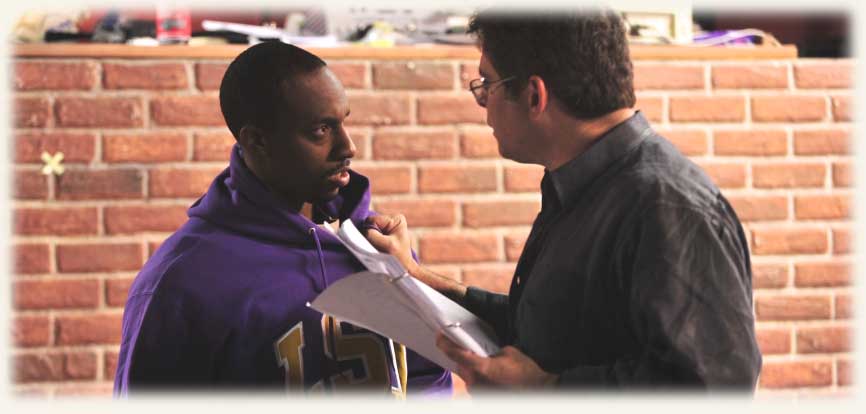
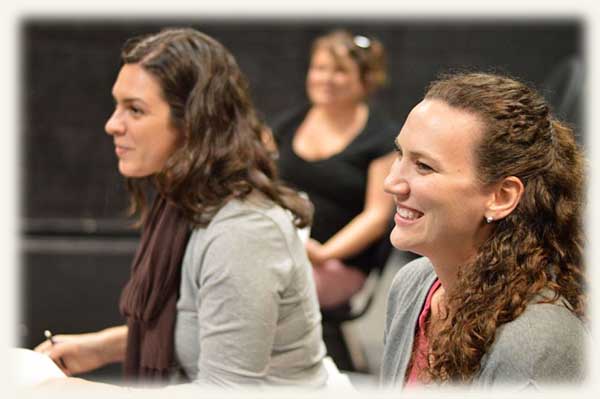
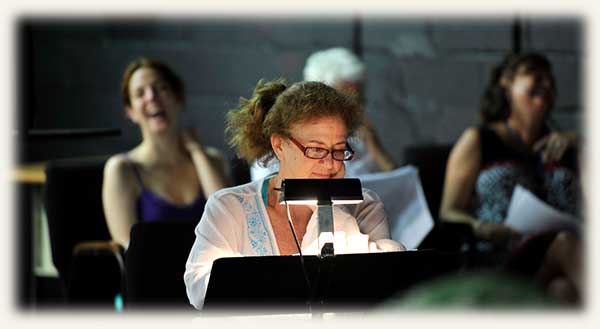
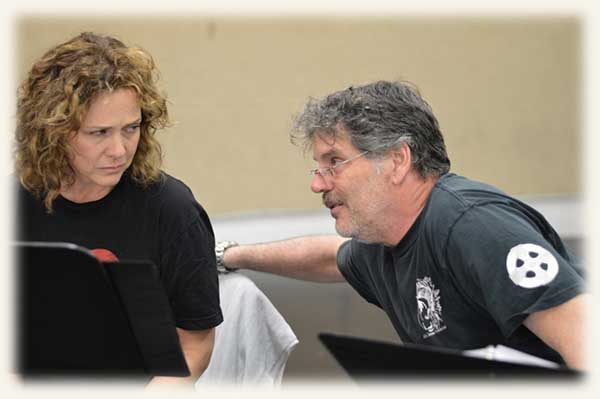
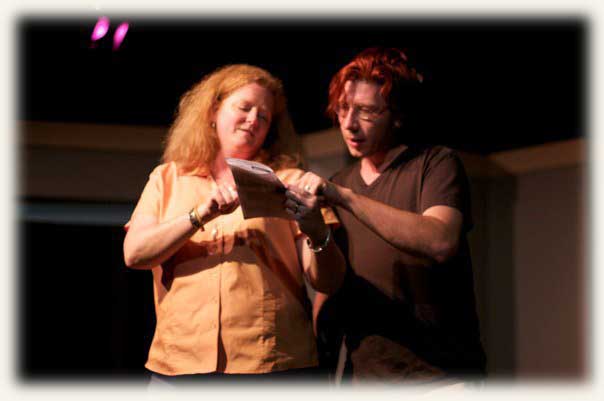

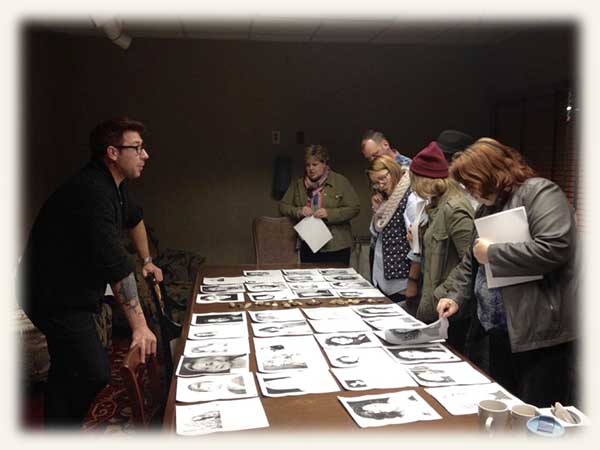
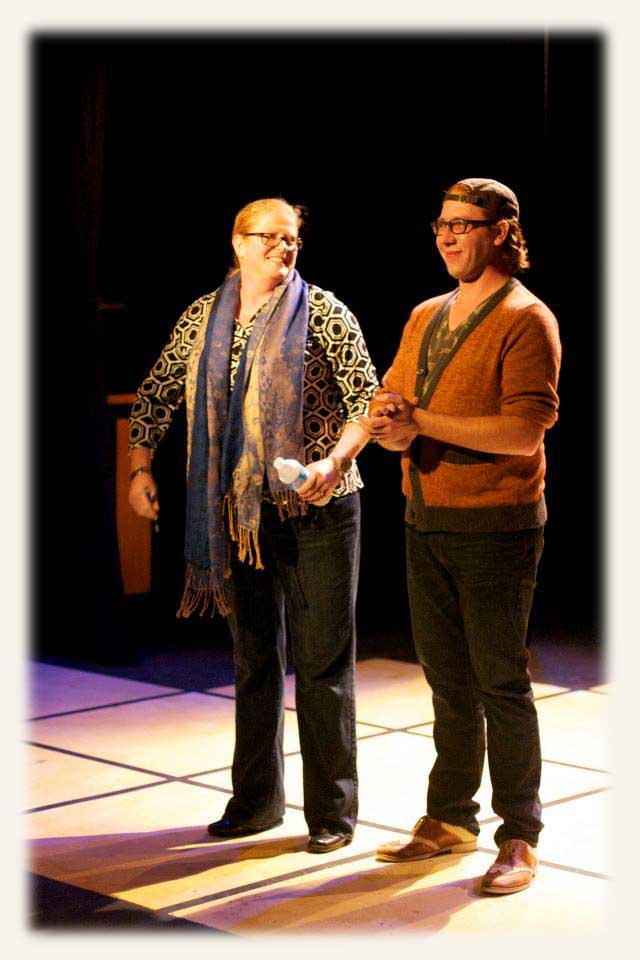
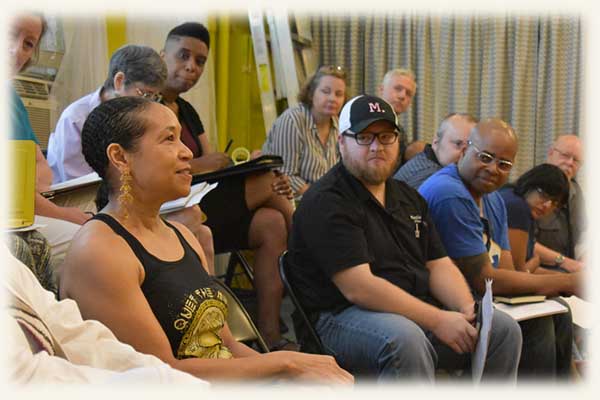

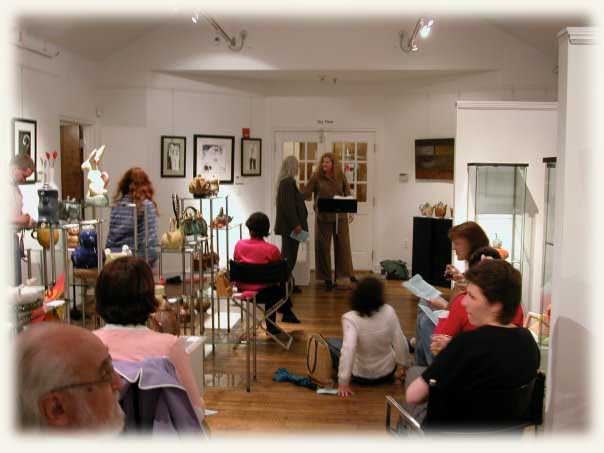

Jill Patrick firmly believes there is no more dangerous thing than an artist without an outlet. From 2002-2006 Jill hosted the Intown Atlanta Writers Group and stepped down in its 24th year to take the position of Managing Artistic Director of Working Title Playwrights. Her work can be seen in literary magazines such as New Millennium Writings, Red Hills Review, Creative License and Cygnet. Since 2015, she has had a freelance column for Lint!, Japan’s premiere English as a Second Language magazine.
She is the Director of New Works Reading Series at Out of Box Theatre in Marietta, Ga., and serves on the Advisory Board for Atlanta's Essential Theatre, as well as on WTP’s Advisory Council. She is the Founding Board Vice President of the Jo Howarth Noonan Foundation for the Performing Arts, which hosts its second annual MoJo Festival celebrating women, wisdom, and possibility on July 28, 2018, at Woodstock, Georgia’s Elm Street Cultural Arts Village. Along with partner in edifying curiosity Jacquelyn Wyer Neubauer, Jill hosts the Fetch a Plate of Culture culinary tour of Atlanta’s vast and delicious restaurant offerings of international cuisines. She studied Theater and Theology at St. Edward’s University in Austin, TX., and holds a B.A. in Performing Arts from Clayton State University, Morrow. Ga.
In an unexpected developmental opportunity, Eating the Singletaries: Tales from a Tall Redhead will receive a workshop reading directed by Sylvia Davenport-Veith at the University of West Georgia’s Play West Festival on Monday, July 16, 2018.
Copyright 2018, Barbara Knott. All Rights Reserved.